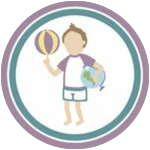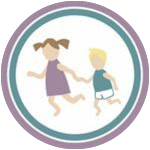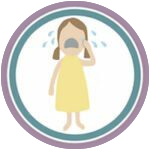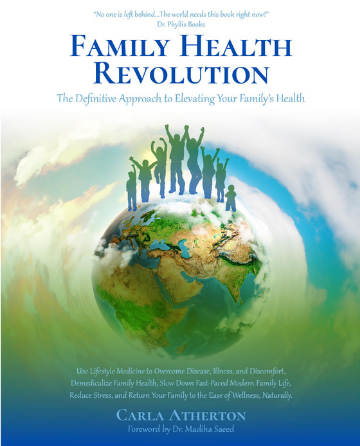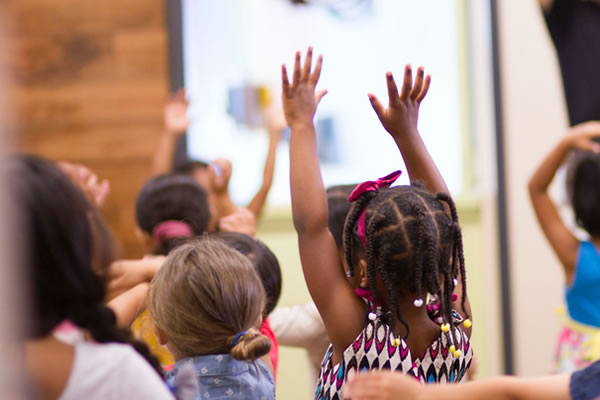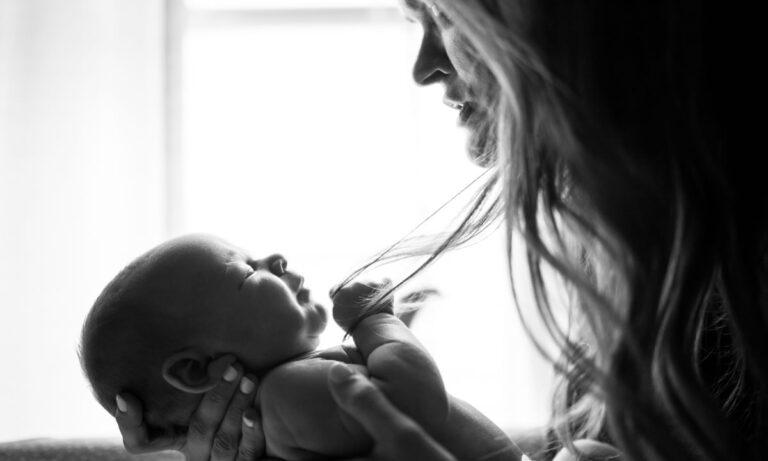Editor: This is a question with many ramifications but can you boil down, what is in your view, the job of a parent?
Naomi Aldort: A parent is here to escort a new soul into the experience of being human. It is a job of nurturing the process of another’s unfolding much like gardening. When we care for a flower, we don’t intervene with its being; we don’t pry its petals open or paint its colors. It is not up to us what kind of flower it is. We provide for it so it can bloom in its own magnificent way and in its own time. We don’t care for the flower if it blooms; we care for it so it can bloom. Nurturing is respectful of God, nature’s creation, and life. It is unconditional love with utmost humility and respect toward creation.
Therefore the job of a parent often ends up being about her own spiritual unfolding. To care for a child with unconditional love, trust, and respect, one has to unfold oneself. In a way, it is a divine job, which means, it requires us as parents to self-realize and come to be at peace so we can nurture another to be herself or himself, with love and guidance, but without interfering with creation; with who the child is.
Editor: Why do parents find it so hard to trust their children and their own intuition?
NA: The problem of trusting the child and one’s own inner wisdom is the result of parenting and modern culture. As children, most of us were literally trained by our parents not to trust ourselves and instead follow authority and the opinions of others.
The lesson of “don’t trust yourself and follow others” is subliminal and deep. It shows up in the daily life of a child without anyone thinking of it. When we wanted to sleep with our mother most of us were told that our intuitive need is wrong and we should sleep alone. Our desire to be close to mom has been turned into doubt and confusion in many ways. Teachers in school, with the best of intentions, strengthen this message of, “Do as you are told even when it goes against your inner voice.”
I am not talking about programmed desires and wants. I am talking about primal needs and an authentic inner voice. In my workshops and talks, I clarify the distinction between superfluous wants to true autonomy of the child.
Editor: Your website announces you as a “facilitator of self-realization through parenting.” What exactly do you mean by this phrase? In your one-on-one sessions and your workshops, in practical terms, how do your work with parents?
NA: Everything and everyone in your life is the mirror of your perceptions. You see the world from your unique point of view. Children are the greatest mirror of all because they don’t yet have much of their own “stories” yet. You get a true reflection.
When parents study with me, they acquire tools that help them free themselves from limiting thoughts, past pain, and stories that get in the way of being the parent they want to be. They learn to see the reflection in the child and to become more capable and peaceful parents.
A parent may have an aggressive or tantruming child. Through their work on seeing the reflection, they find how the child’s tantrum or aggression is actually a reflection of the parent’s inner or outer emotions and behavior. Even the gentle and kind parent may discover the inner volcano she may have ignored for years.
When we try to control the child for our convenience or conviction, we miss an opportunity to grow and to become the parent we truly are at heart. Each parent knows these moments of not acting from love but from another painful place that is imprisoning them. In those times, instead of releasing old pain and limiting habits, a parent may tell the child to adjust her behavior so that she/he (the parent) can stay in a familiar emotional state. This makes parenting more difficult, and less connected and both, the child and parent lose.
Such parental need to control is obviously unconscious and not a fault; nothing to feel guilty about. We all do it and must forgive ourselves and look forward the next opportunity. We look forward to the next time things go “wrong” so we can practice peace.
Parenting can be a spiritual path towards self-awakening if we want to “ride” it with awareness.
How does your work with parents fit into the greater context of social change all over the globe?
Our global goal is peace among people and with the planet. We have learned that we must live with the many types of ethnic, cultural, religious, and national groups at peace. We have to start at home. If we cannot have peace within ourselves, we cannot have peace with our spouses, family, and children as well as in the community and the global society. Peace starts with how we raise children and how we treat the loving gifts of the earth.
Children join whatever human world we offer them and adopt whatever ways of being, thinking, feeling, and relating we immerse them in. They have no frame of reference other than our models and the way we treat them.
Parenting is actually the fastest way to bring peace to humanity. War starts in the home and so does peace. It starts inside the soul of each person and each parent. Becoming focused on creating inner peace every moment and bringing peace to a parent-child relationship is the most effective remedy to all wars. The tool is unconditional love.
Obviously, we are very far from this goal. Governments still claim to lack the funding for parent education and support, but they have money to build killing machines and armies. War starts at home. War starts with each one of us inside and as we respond to our spouses and children.
All societal developments are rooted in separation. What I teach is unity and connection. Children growing this way can become the new possibility of peaceful humanity.
So far raising children has been a struggle against the child; ways to shape the child into what we believe he/she cannot become without us.
Some parents think it is not possible, and that children behave badly when not coerced, controlled, and shaped. However, in every case in which such a parent talked to me directly, we found that the child’s behavior was caused by the controlling ways in the first place. The transformation of understanding and connection always brings this struggle to an end and reveals a loving and highly caring and responsive child.
What we are learning is not permissiveness, nor license. It is instead a way for a parent to be authentically herself. The role of a parent is one of a leader. True leaders bring peace, not by force, but by love.
The insight I bring into parenting is the heart of current trends, bringing love to the source; the beginning of life.
If we can move away from the struggle of manipulating birth and children and instead, learn ways to trust and nurture their innate magic, we will raise people who will be peaceful and bring peace to society.
Spanish Editor Graham Forrest of Noticias Positivas Magazine interviews Naomi Aldort
©Copyright Naomi Aldort



